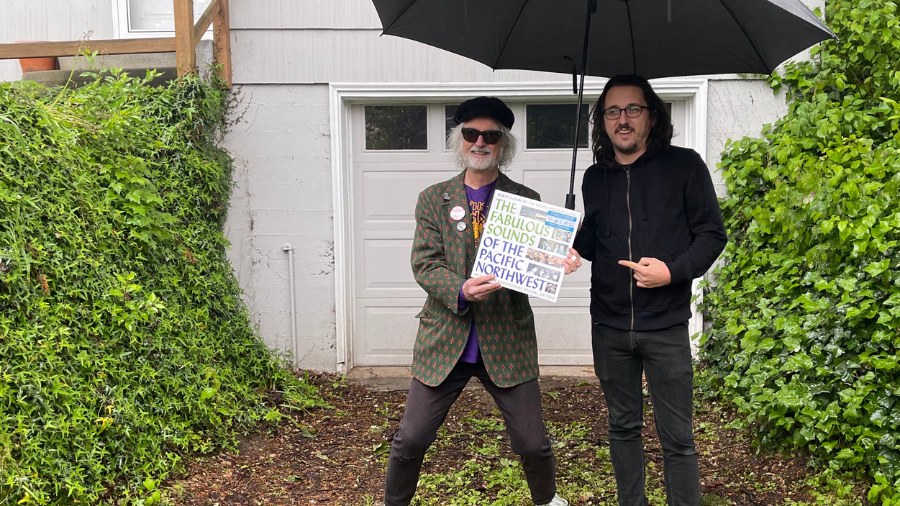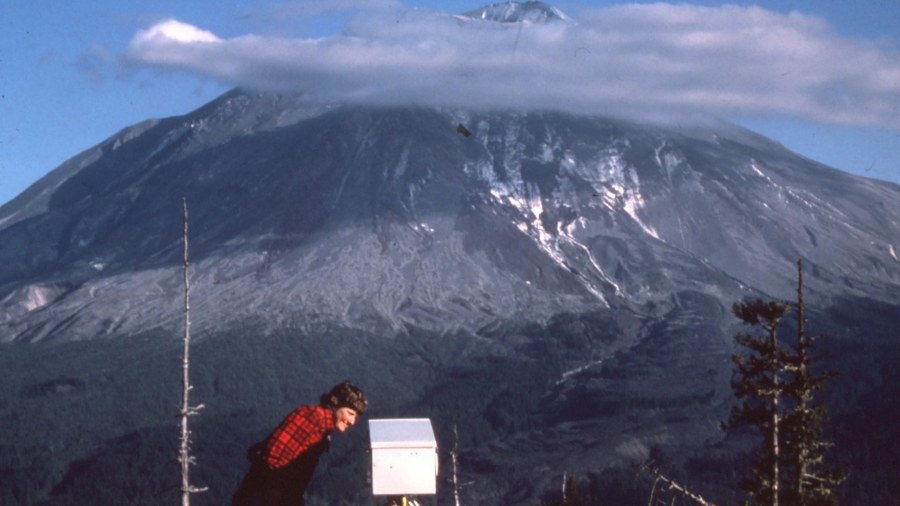History of abortion laws and politics in the Evergreen State
May 11, 2022, 12:31 PM | Updated: May 12, 2022, 12:54 pm

A portion of Washington state's 1909 abortion law, which was in effect until Referendum 20 passed in 1970. (Washington State Archives)
(Washington State Archives)
As the fallout from the Supreme Court leak continues to fuel debate, demonstrations, and political maneuvering regarding the future of abortion rights, it’s worth noting that Washington voters have twice approved pro-choice ballot measures in the past – including a few years before Roe v. Wade, and again in 1991.
A review of the historical record shows that there are essentially five eras of government regulation of abortion in Washington.
The first era would be before 1909. It appears that there was no law prohibiting abortion before that year – in what’s now Washington when it was part of Oregon Territory from 1848 to 1853, in Washington Territory from 1853 to 1889, and from 1889 when Washington became a state.
The second era began in 1909, when a law was passed by the state legislature that said any person performing an abortion – or any woman having an abortion – could go to prison for up to five years or pay a fine of up to $1,000 (about $30,000 adjusted for inflation.) Exceptions were made if the woman or child’s life was at stake. It was also a crime to manufacture, sell or give away drugs or instruments used for abortions.
That 1909 law was in effect for more than 60 years. Anecdotally – based on a search of newspaper archives – it appears that people were only occasionally prosecuted for abortion-related crimes, but the actual total numbers of those charged and convicted are unknown.
Karen Cooper was for many years the head of the Washington chapter of NARAL – the National Abortion Rights Action League – which is now known as Pro-Choice Washington. Cooper says that in the post-1909 era and up through the late 1960s, abortions were clearly taking place in Washington.
When Cooper was director of Washington NARAL in the late 1990s, the organization published a book of oral histories – In Our Own Words, now out-of-print – of women in Washington who had suffered physical and emotional harm during the pre-Roe era.
“We had well-qualified doctors that performed illegal [but] safe abortions,” Cooper said. “There was a network of people who gave abortions if you knew where to go. But then there were ‘back alley’ abortions,” he says, that were often physically harmful. Access to safe abortions was mostly a function of economics, with the poor having fewer options than even the middle class.
In 1967, California passed an abortion reform law. This was apparently a catalyst for debate in Washington – a cursory review of newspaper archives from 1968 and 1969 reveals articles and editorials exploring expert medical opinions, accounts of public discussions of political policy, and moral arguments from religious leaders about which path elected officials and Washingtonians could choose.
The public debate culminated in 1970, when the Washington state legislature passed its own abortion reform law. It was sent to the voters as “Referendum 20” in November of that year.
According to the 1970s Voter’s Pamphlet, Referendum 20 permitted “termination of pregnancy . . . by or under the supervision of a licensed physician within four lunar months after conception upon a woman not quick with child who has resided in this state for at least 90 days prior to termination: with the woman’s consent and that of her husband, if she is residing with him, or if unmarried and under eighteen years of age, with her consent and that of her legal guardian; and providing that no objecting hospital, physician or other person shall be required to participate in a termination of pregnancy.”
Dan Evans was in the second of his three terms as governor in 1970. Evans, who later served in the U.S. Senate, is a Republican, and he’s pro-choice. He told KIRO Newsradio that the 1970 legislation had Democratic and Republican support; Washington was not deeply divided along partisan lines regarding abortion 52 years ago.
“As I remember, the vote – I don’t believe – was even too close,” Evans said. “It was a bipartisan effort, and carried through, and we’ve pretty much since had the same sense of, ‘this is a matter between a woman and her conscience and her doctor,’ and that’s the way it’s been, and I think it will stay that way – in this state at least.”
In advance of the public vote, organizations formed to promote approving and rejecting the measure. One of the main proponents of Referendum 20 was Republican State Senator Joel Pritchard, who was joined by fellow Republican Lois North as well as Democrat David Sprague. Newspaper ads for and against Referendum both invoked opinions from medical professionals and religious leaders supporting each side’s respective opinion.
Referendum 20 passed by a fairly wide margin of 56% to 44% — carrying a total of an astounding 23 of 39 counties on both sides of the Cascades. This marked the beginning of Washington’s third – and shortest – era concerning abortion and the law.
What the 1970 law did, specifically, was legalize abortion up to four months after conception. There were restrictions – the woman had to have lived in Washington for 90 days, and had to have consent from her husband. There was also what was called a “conscience clause,” where hospitals and doctors weren’t required to perform what’s described in the law as “termination of pregnancy.”
It may have been considered a progressive step compared to the 1909 law, but Stewart Jay says its roots weren’t exactly modern.
Jay is a constitutional scholar and University of Washington Law School professor emeritus. He spoke to KIRO Newsradio and described his interpretation of the concept of “quickening,” which informed the 1970 law.
“The right of abortion ended when ‘quickening’ occurred, which meant when the mother could detect the movement of the fetus,” Jay said. “And that is essentially a religious definition of when life begins because that was the old position of the Catholic Church back in the Middle Ages. And indeed, it was the common law until the 19th century when statutes began to change abortion law.”
“In common law, abortion was not illegal until the time when the woman could feel the fetus move,” Jay said.
It was the timing of Referendum 20 that made it the shortest of the five eras of abortion law and politics in Washington. When Roe v. Wade was handed down in 1973, the 1970 Washington law stayed on the books, but Stewart Jay says it became unenforceable.
Fast-forward to the late 1980s, when the US Supreme Court heard a case from Missouri called Webster v. Reproductive Health Services. Its provisions restricting the use of public resources in carrying out abortions were found by the Supreme Court to be constitutional, but the case did not go so far as to overturn Roe v. Wade. However, it was perceived by many as coming close, and that inspired Planned Parenthood and other individuals and groups in Washington to seek to codify Roe v. Wade in state law.
Thus, the next era of abortion law in Washington – the current era – began in November 1991 when Initiative 120 was placed on the ballot.
Constitutional scholar Stewart Jay knows a lot about I-120 because he wrote it.
Jay told KIRO Newsradio that the spirit and intent of the 1991 initiative hews closely to the principles behind the Roe v. Wade 1973 ruling.
“The people of Washington find that individuals possess a fundamental right of privacy with respect to their personal reproductive decisions,” Jay said. “And the initiative spells it out – that every person has a right to choose or refuse birth control, to choose or refuse to have an abortion within, essentially, the limits of Roe v. Wade – that is, until the viability of the fetus or to protect the life or health of the mother.”
“And so that’s a codification of Roe,” Jay said, though, he says, I-120 goes further.
“It also says, specifically, that the state, through, say, administrative regulations, can’t do anything that would burden the woman’s right to have an abortion,” Jay continued. “By ‘burden,’ it means, essentially, imposing any kind of onus on them that was not, strictly speaking, medically necessary to protect her health to make the process a safer process.”
“That, then, is the heart of the initiative,” Jay said.
“It then goes on to provide that if the state offers any kind of funding to women for maternity care such as labor and delivery, maybe through our Medicaid Program. They also have to offer comparable abortion services,” Jay said. “So the woman’s choice will not be coerced by the availability or lack of availability of funds.”
Jay says that I-120 was a bipartisan effort. Along with Democrats and pro-choice groups, several Republicans were involved in drafting and reviewing the initiative, and in supporting the campaign – at least in the Puget Sound area.
When the November 1991 ballots were tallied, I-120 had passed, but by only about 4,000 votes among the 1.5 million cast – carrying just 8 of 39 counties, mostly on the west side of the mountains.
Stewart Jay says at least one person was involved in both Referendum 20 in 1970 and I-120 in 1991.
“An important figure in the 120 campaign,” Jay wrote in an email, was “Lee Minto, who was Executive Director of Planned Parenthood of Western Washington at the time. Lee more or less led the effort (although not the day-to-day campaign direction). She was indispensable. Lee also had worked on Referendum 20.”
It was a razor-thin margin, but supporters of I-120 – and the people of Washington – did what the U.S. Congress has been unable to accomplish in the past 49 years: codify Roe v. Wade.
Looking ahead – should the Supreme Court overturn Roe v. Wade – Stewart Jay says it’s not likely, but a Republican majority in the U.S. Senate and House could pass a federal law that would override the voter-approved state law here in Washington.
Karen Cooper says short of such a federal ban, the overturning of Roe won’t have much effect in the Evergreen State. Morning-after pills and other non-invasive forms of abortion mean that access is harder to restrict, and I-120 accomplished what its supporters set out to in the wake of Webster v. Reproductive Health Services.
“[In] Washington, nothing’s going to change because we codified Roe 30 years ago,” Cooper said. “The only change will be, we’ve been closing abortion clinics because the rate of abortions is going down the last few years, and so we’ll be opening up [new clinics].”
“We’ll be bringing women in from other states to have abortions in Washington,” Cooper said.
Karen Cooper’s predictions are partly echoed by Dan Evans.
“I think, ultimately, the whole issue is not going to be decided by whatever the [Supreme] Court decides,” Evans said. “It’s going to be decided by what people themselves decide. And I think that as new methods of abortion are created, it will make it more and more difficult for any governmental agency, or anybody in government, to affect it.”
EDITOR’S NOTE: Special thanks to Benjamin Helle of the Washington State Archives for critical research assistance with this story.
You can hear Feliks every Wednesday and Friday morning on Seattle’s Morning News and read more from him here. If you have a story idea or a question about Northwest history, please email Feliks here.













